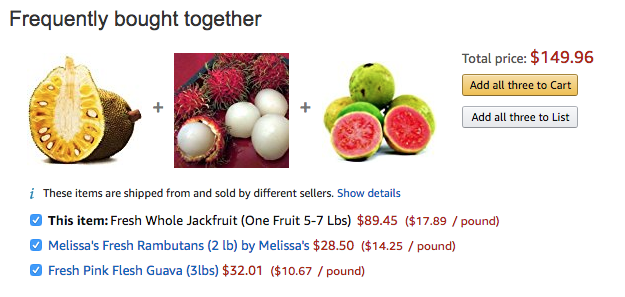The ABCs of Biotech for Christians - Eleventh in a series - J is for Jackfruit
Biotech has disappointed some people by engineering changes in crops, animals and vegetation, but it has impressed us with insights about food that guide us to eat intelligently. We are what we eat!
The jackfruit grows in the tropical zone and is commonly found in the land and markets of India, Sri Lanka, Bangladesh, parts of Africa, Brazil, the Philippines, and other areas of year-round humid, warm climate. According to the California Rare Fruit website some Jackfruit trees are in southern Florida but they are for sightseeing rather a food source. Some fruit may be found in ethnic markets in the US.
You can learn a lot about jackfruit and recipes for it on YouTube videos or websites. From a wrinkle treatment to promoting hair growth to fortifying your immune system to healing ulcers, it is an incredible food.
And it has the distinction of being the largest tree-borne fruit in the world. One can weigh as much as 100 pounds and grow to 36 inches in length and 20 inches in diameter! You could order one on Amazon for about $90, expensive no doubt because of its weight and shipping. So, most who eat it live in parts of the world that have many poor people, and it is God’s gift to them with 10 or 12 pods providing one-half day of food.

Jackfruit is among the foods that offer prebiotic help for “gut” health. An article on ScienceDirect.com describes a biotech goal of taking the prebiotic elements from certain foods to introduce them into others through genetic modification to give them the prebiotic “edge”:
Prebiotics are non-digestible complex carbohydrates that are fermented in the colon, yielding energy and short chain fatty acids, and selectively promote the growth of Bifidobacteria and Lactobacillae in the gastro-intestinal tract. Fructans and inulin are the best-characterized plant prebiotics…
Transgenic maize, potato and sugarcane with high fructan, with no adverse effects on plant development, have been bred, which suggests that it is feasible to introduce fructan biosynthesis pathways in crops to produce health-imparting prebiotics.
Developing prebiotic-rich and super nutritious crops will alleviate the widespread malnutrition and promote human health…
This excerpt explains to us that biotechnology is working on genetically engineering certain crops with the genes of prebiotic plants so that they too can provide prebiotic benefits. The jackfruit is one potential source of prebiotic carbohydrates.
Maize, potato and sugarcane are foods or sugar eaten in quantity by obese and overweight people, who have been discovered to have a different gut microbiotic profile than lean people. So, by modifying those crops to have a prebiotic profile, one with complex carbs that are not digested but rather promote good bacteria in the gut, overeaters will enjoy better health.
But maybe some foods are not meant to be prebiotic. ?